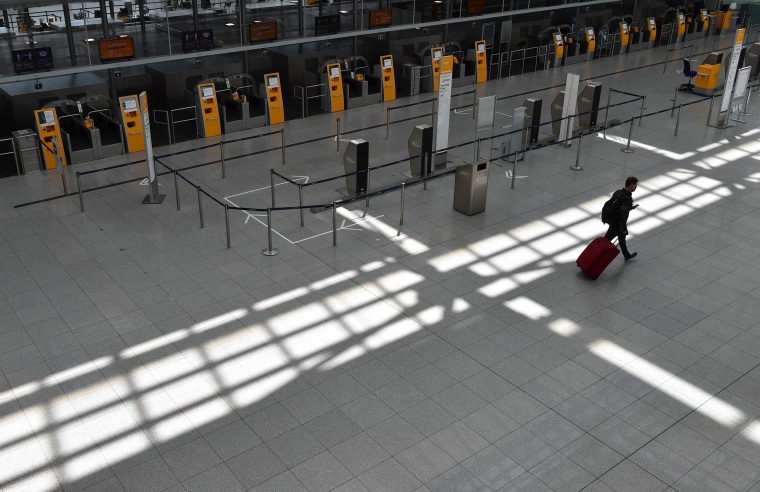In a widely-panned Oval Office address in March, Donald Trump announced a partial European travel ban as a way to protect Americans from the coronavirus outbreak. True to form, the president failed to alert U.S. allies in advance, and he took some rhetorical shots at our friends.
"[T]aking early intense action, we have seen dramatically fewer cases of the virus in the United States than are now present in Europe," Trump boasted at the time. He proceeded to chide the European Union for having "failed to take the same precautions" as his administration.
What the Republican did not know in mid-March, however, was that conditions in Europe would soon improve, while conditions in the United States would soon deteriorate. As of today, we're no longer the ones doing the banning; we're the ones being banned.
Most travelers from the United States will be barred from entering the European Union after it reopens its borders Wednesday because the coronavirus is still far too prevalent in the U.S., European officials announced Tuesday. The E.U.'s 27 members have been drawing up a list of countries whose virus levels are deemed low enough to allow people from those places to travel into the bloc, which has been mostly sealed off since March.
That list was formally unveiled this morning. The United States didn't make the cut -- which isn't too surprising, given that we have the highest number of reported cases on the planet, and our infection rates are getting worse, not better.
Circling back to our earlier coverage, it was just last month when Trump bragged to reporters, not only about his administration's response to the pandemic, but also about what he sees as international admiration for the White House's efforts.
"I'll tell you, the whole world is excited watching us because we're leading the world," the president said with a straight face. At another event, the Republican added that "many" heads of state from around the world view the United States "as the world leader" on combating COVID-19, and "they're following us."
It was among the most demonstrably ridiculous boasts Trump has made about the crisis since it began. Much of the world has been shocked by the United States' ineptitude in recent months, with the New York Times reporting in April that the pandemic is "shaking fundamental assumptions about American exceptionalism."
The Washington Post reported two weeks ago that international health experts were "watching with a growing sense of alarm and disbelief," as American officials expressed indifference to scientific warnings. Siouxsie Wiles, an infectious-diseases specialist at the University of Auckland in New Zealand, said, "It really does feel like the U.S. has given up."
And as a consequence, our E.U. allies now see Americans as a public-health hazard. Or as Rachel put it on the show last week, "We are so disastrously, poorly run right now as a country that we are an international catastrophe that the rest of the world has to protect itself from."
I continue to wish Trump's fantasy about the world eagerly following the United States' lead were rooted in reality. Alas, as is too often the case, the confused president has it backwards.

